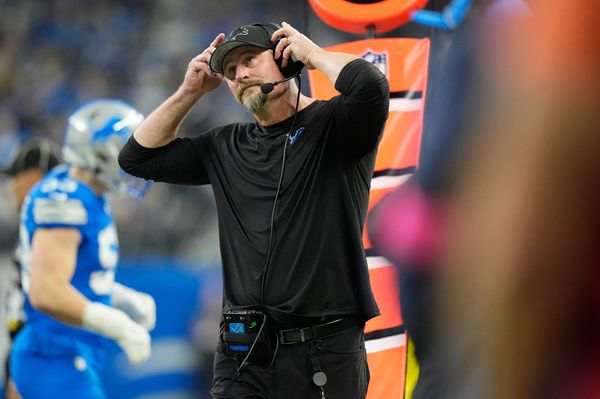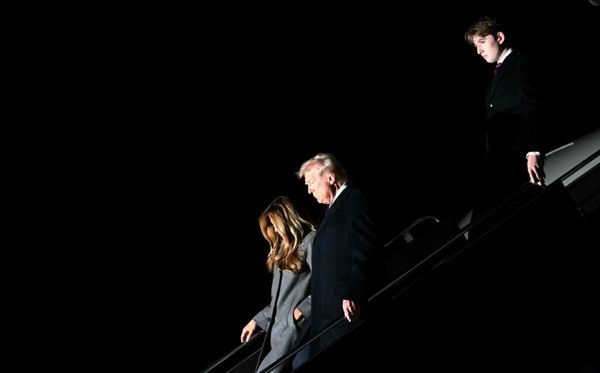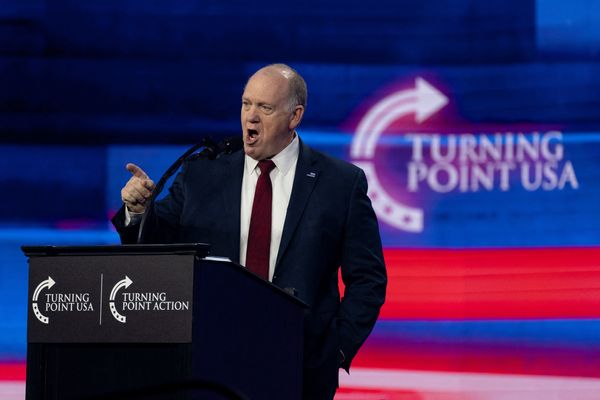SEATTLE — The news coming out Thursday that Russell Wilson had signed a whopping five-year extension with the Denver Broncos merely accentuated the stark reality facing Wilson’s former team.
For 10 years, the Seahawks had a franchise quarterback (or a reasonable facsimile thereof). And now they don’t. Furthermore, they entered that status voluntarily, of their own free will.
Obviously, there’s far more to the Seahawks’ decision to trade Wilson; indeed, every nuance and wrinkle has been debated ad nauseam. A valid case can be made the Seahawks had no choice but to make the move, given the strong apparent indications that Wilson had no interest in re-signing with Seattle (who’s to blame for that state of affairs is another debate for another time).
Denver may even come to regret the $49 million a year it has committed to the soon-to-be 34-year-old Wilson. For the present, though, he gives them a far better chance to win Super Bowl LVII than the Seahawks have without him.
And now replacing Wilson becomes the overarching focus of the Seattle franchise, the success of which will largely determine whether dealing him was the right move. And whether the Seahawks will return to relevance any time soon. It’s something of an existential dilemma in the post-Wilson world.
I don’t know of anyone who thinks Geno Smith, who has won the quarterback job — for the time being — is that guy. And I don’t sense any strong confidence that Drew Lock, who likely will get a crack at the job at some point, is the long-term answer.
But what I do hear frequently — and I alluded to it in a recent column — is the notion that if and when the Seahawks’ 2022 season goes off the rails, that very struggle will be the vehicle for restoring their viability. To wit: The poorer the Seahawks record in ‘22, the higher the draft pick in ’23, at which time they’ll select the next Russell Wilson to ride in to Lumen Field to save the day. For that reason, there is a segment of the fan base willing (indeed eager) to write off this season in the belief it would set them up for future success. Tank now, reap the rewards later.
It’s an enticing notion, but I would just warn that it’s simply not that easy. There’s a very real possibility that the Seahawks are entering a stretch where the pursuit of a franchise quarterback becomes a frustrating and elusive enterprise. And you can’t always tank your way out of it.
One need look no farther than Wilson’s new team, the Broncos. After Peyton Manning’s retirement following a Super Bowl 50 victory, the Broncos entered a six-year stretch from 2016-21 in which they had 11 starting quarterbacks. And in the last five of those years the Broncos had losing records, emboldening them to do whatever it took to land (and pay) Wilson.
The Broncos are far from the only team that has fallen into an endless morass of mediocrity while it waits for the golden QB to land in its midst. Think Jets, Jags, Bears and a few others. Maybe those teams finally have the right guy now; they’ve all thought that before, incorrectly. And in many cases, it doesn’t matter how high the draft pick is that they believe will bring salvation to them; the NFL landscape is littered with quarterbacks taken high in the first round who turned out to be washouts. Can you say, “JaMarcus Russell?”
The 2018 draft is a classic example of the vagaries of quarterback drafting. It was likened by many analysts in potential difference-makers to the two landmark QB drafts in history: 1983 (Dan Marino, John Elway, Jim Kelly) and 2004 (Ben Roethlisberger, Philip Rivers, Eli Manning).
Baker Mayfield went No. 1 overall to the Browns. He had his moments but overall was a bust. Sam Darnold went No. 3 to the Jets. Bust. Josh Allen, No. 7 to the Bills. Monumental success. Josh Rosen, No. 10 to the Cardinals. Monumental bust. Lamar Jackson, No. 32 to the Ravens. Huge success.
That’s a 60% failure rate in the first round of a touted draft, and it didn’t necessarily take a tanked season to land a blue-chipper. The Ravens got Jackson, a future MVP and Super Bowl quarterback, coming off a 9-7 season. Wilson was famously a third-round pick by the Seahawks. Their only other Super Bowl quarterback, three-time Pro Bowler Matt Hasselbeck, was selected in the sixth round (after Ryan Leaf, Charlie Batch, Jonathan Quinn and John Dutton). The GOAT, Tom Brady, was also taken in the sixth round, 199th overall, but only after this rogue’s gallery of throwers were off the board: Chad Pennington, Giovanni Carmazzi, Chris Redman, Tee Martin, Marc Bulger and Spergon Wynn.
The point is, identifying and landing an elite quarterback is an inexact science. The Seahawks aced it once with Wilson, but there is no guarantee they can do it again. And that goes whether they have a top-five pick next year or not. Some years there simply isn’t a franchise quarterback coming out of college. Who knows if Bryce Young, C.J. Stroud or … whomever … will fill that bill?
When the Seahawks dealt Wilson, they entered a murky world of quarterback uncertainty. And it may not be easy to get out of.







